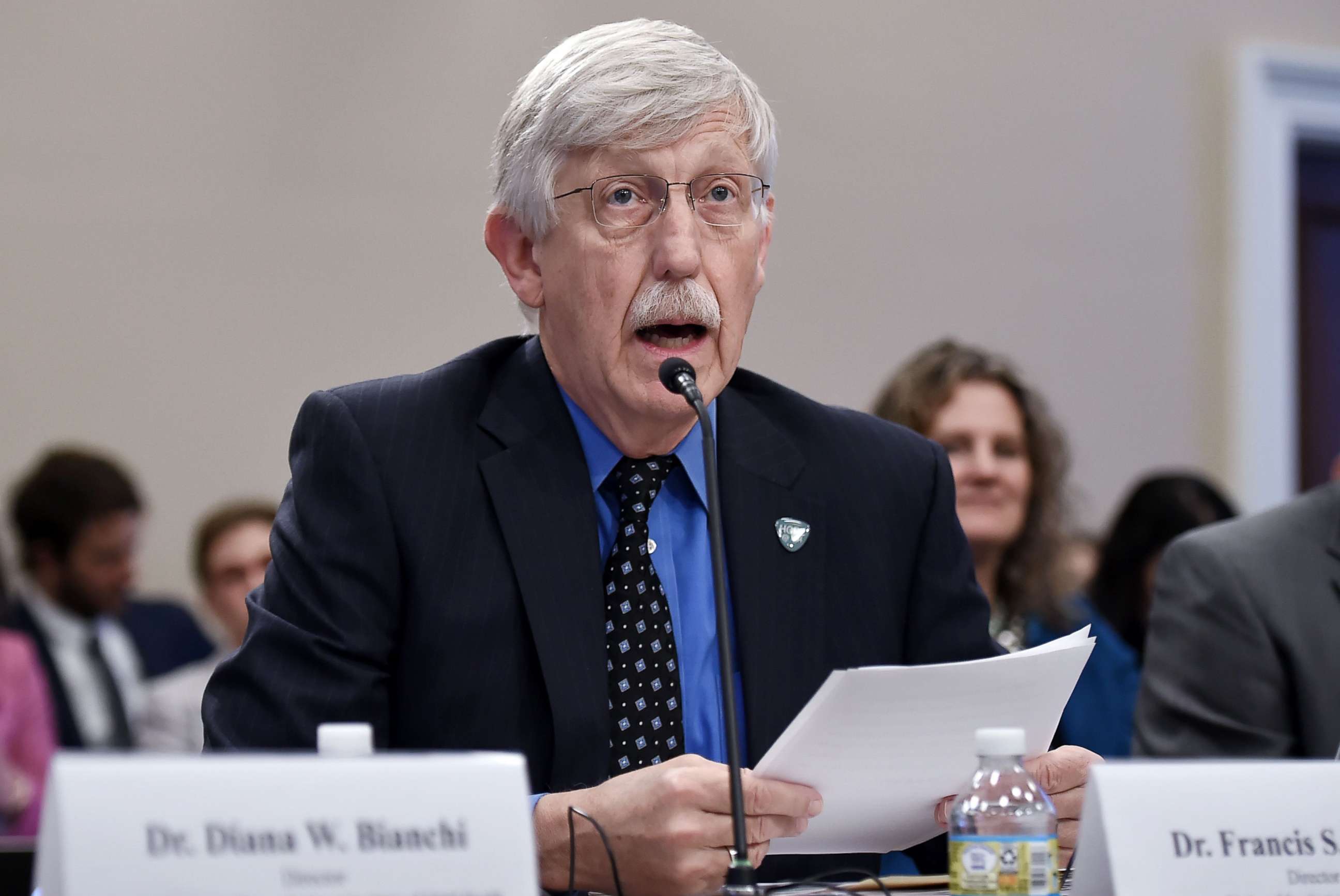NIH director: Up to 70K coronavirus cases could be confirmed in US by end of next week
The head of the National Institutes of Health spoke to employees on Friday.
As many as 70,000 Americans could be confirmed as infected with coronavirus by the end of next week, marking a “pretty dramatic” increase in the number of confirmed cases, the director of the National Institutes of Health, Dr. Francis Collins, told his employees in an agency-wide conference call on Friday.
But, Collins cautioned, “that doesn’t mean necessarily that the outbreak has exploded at an even more rapid rate.”
“It just means we’re now able to find out who’s out there, who is infected,” because “testing is now going to be much more available across the country,” he said.
As director of NIH, Collins oversees the National Institutes of Allergy and Infectious Diseases, whose own director, Dr. Anthony Fauci, has become a trusted authority during the coronavirus crisis.

According to Collins, the number of confirmed coronavirus cases inside the United States currently stands at about 14,000, and, “We will probably see four, five times that number of cases a week or 10 days from now."
Tune into ABC at 1 p.m. ET and ABC News Live at 4 p.m. ET every weekday for special coverage of the novel coronavirus with the full ABC News team, including the latest news, context and analysis.
Johns Hopkins University reports an even higher number of currently confirmed cases in the United States, nearing 17,000. An estimated 225 Americans have died.
"When will we be out the other side of this?” Collins asked rhetorically on the Friday call. “I have no crystal ball. ... Will we be back [to normal] by July or August or September? I have no idea."
Collins made clear that “social distancing” is vital to stemming the spread of the deadly disease, even as he derided the popular phrase.
“I really don’t like the ‘social distancing’ term,” he said. “It sort of implies that we have to get apart socially. We really have to get apart physically. This may be a time where we ought to try every other means to stay together socially, linking up by virtual means … to support each other, to share experiences, to make sure that needs that are out there can be addressed somehow.”
People need to follow the guidance being provided by authorities, according to Collins.
What to know about coronavirus:
- How it started and how to protect yourself: coronavirus explained
- What to do if you have symptoms: coronavirus symptoms
- Tracking the spread in the US and Worldwide: coronavirus map
“The greatest concern we should all have is for those most vulnerable, who if they get infected could be in real trouble,” he said. “The best thing we could do to prevent that is to not be a vector ourselves, and the best way to not be a vector is to get apart [from each other].”
"We are going to have to be in this for the long haul,” warned Collins, who noted that tens of thousands of NIH employees may have been joining his discussion.




